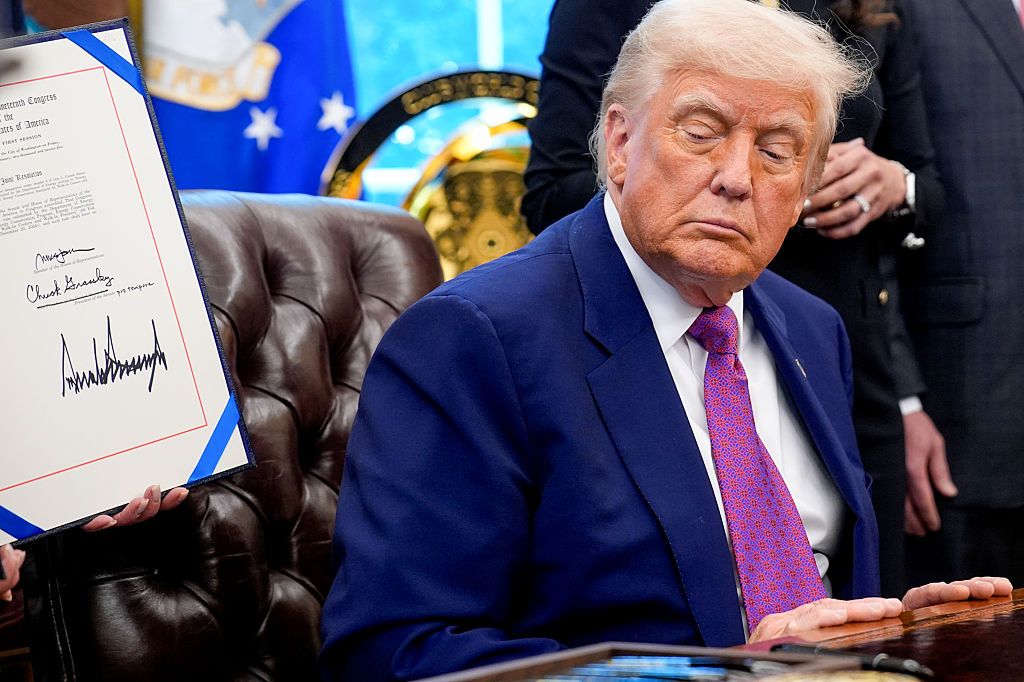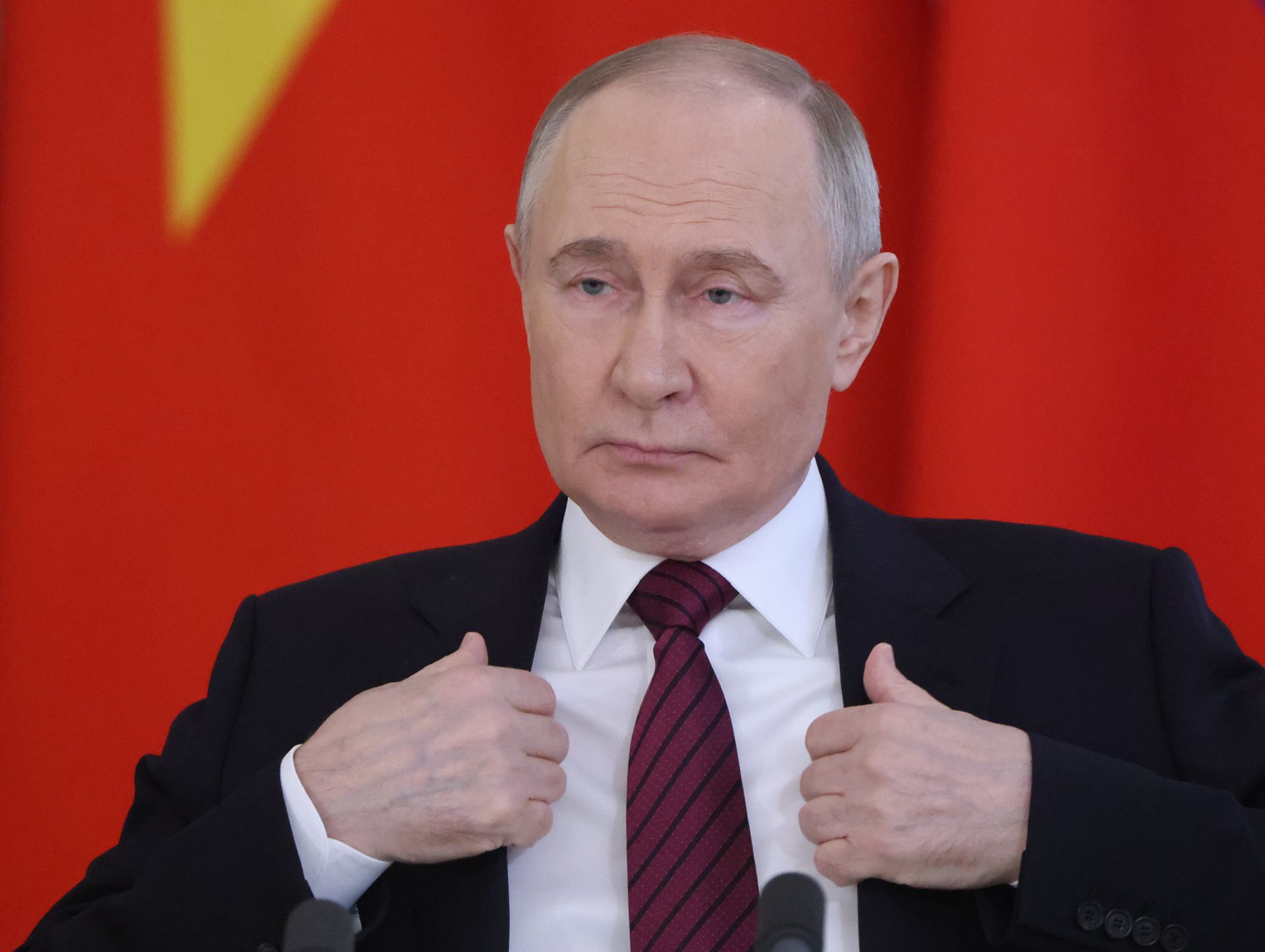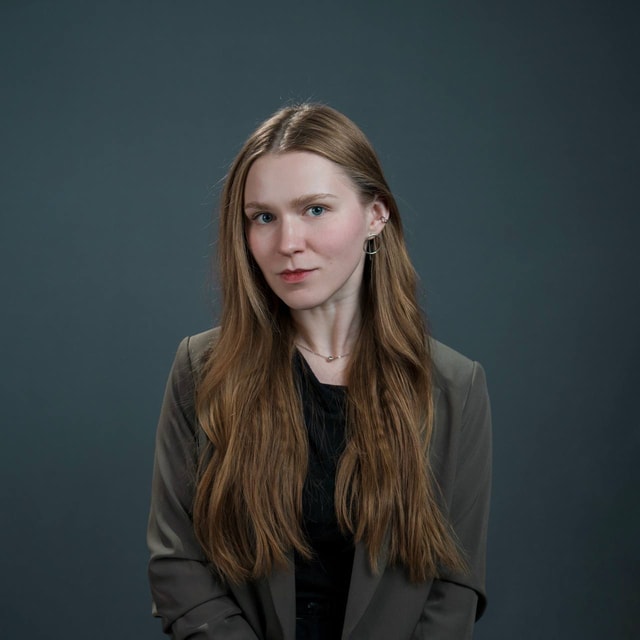Didn't Zelensky impose a ban on talks with Putin? Not really

President Volodymyr Zelensky in Kyiv, Ukraine, on April 22, 2025. (Vitalii Nosach / Global Images Ukraine via Getty Images)
President Volodymyr Zelensky's willingness to hold direct talks with Russian President Vladimir Putin this week in Istanbul sparked a question over whether such a move contradicts his earlier decree.
In the fall of 2022, Zelensky signed a decree that "stated the impossibility of holding negotiations with Russian President Putin," as a response to Russia's illegal annexation of Donetsk, Luhansk, Zaporizhzhia, and Kherson oblasts, parts of which Moscow didn't even control.
"He (Putin) does not know what dignity and honesty are. We are ready for a dialogue with Russia, but with a different president of Russia," Zelensky said at the time.
Moscow has cited Zelensky's decree as a ban on talks with Putin and used it as an excuse for avoiding direct talks with Kyiv. Putin has also falsely claimed that Zelensky lacks legitimacy and can't represent Ukraine.
Putin said that such talks would be considered "illegitimate" and therefore "their outcomes could also be declared illegitimate." Now, Putin himself said that he's open to direct talks with Ukraine.
According to a source in Ukraine's president's office, the decree was a "signal to those in Ukraine who wanted to speak (to Russians) bypassing the central government."
"Back then we stated the impossibility, now we can state the possibility, the president as the head of state determines this," the source added.
"There is no ban as such, the Russians twisted it."
What is the decree about?
The decree concerning negotiations with Putin was a response to the five decisions approved by the National Security and Defense Council adopted on Sept. 30, 2022. Days later, the document was signed by Zelensky.
Although the decree does not explicitly mention a ban on holding talks, many have seen it as a de facto ban on direct talks with Putin.
"The constitution clearly says that he (the president) negotiates. That is, he decides with whom to negotiate, when to negotiate, and in what format."
Ukrainian lawmaker and chair of the parliament's foreign affairs committee, Oleksandr Merezhko, told the Kyiv Independent that the problem lies in the interpretation of the decree.
"This has given rise to false interpretations. The fact that the president allegedly forbade himself from communicating with Putin. No, that's illogical," he said.

According to Ukraine's constitution, the president represents the state in international relations, manages foreign policy, and negotiates and concludes international treaties on behalf of Ukraine.
"The constitution is always above a presidential decree," Merezhko said. "The constitution clearly says that he (the president) negotiates. That is, he decides with whom to negotiate, when to negotiate, and in what format," he added.
"The decree was aimed at preventing attempts and prohibiting others from conducting any negotiations with Putin."
Tetiana Shevchuk, a lawyer with the Anti-Corruption Action Center in Kyiv, said that Ukrainian law does not require such a decree.
Why did Zelensky sign the decree?
Zelensky himself has committed extensively on his 2022 decree.
In January, Zelensky said that such a move was made to prevent any unauthorized talks with Russia that might involve Ukrainian politicians.
According to the president, Putin rapidly began establishing "a large number of different channels" aimed at influencing Ukraine, together with "separatists" and "representatives of other countries."
"There were many negotiation processes, many shadow dealings. I stopped it quickly. I just stopped separatism in our country," Zelensky added.
At the beginning of the full-scale war, Russia also sought to pressure Ukrainian lawmakers, European officials, and the U.S., he said.

Without specifying names, the president said that those involved in the behind-the-scenes efforts were later arrested and exchanged for Ukrainian prisoners of war (POWs). Presumably, Zelensky referred to Viktor Medvedchuk, the pro-Kremlin politician who was arrested and sent to Russia amid a prisoner swap in September 2022.
People who spoke to the Kyiv Independent said there are no legal barriers and that Zelensky doesn't have to revoke the decree or make amendments to it.
"This ban applies to others. Therefore, I see no need to cancel this decree," Merezhko said.
Asked whether there should be a new decree lifting the ban on talks with Putin, the source close to the president replied that there's no need for this.












